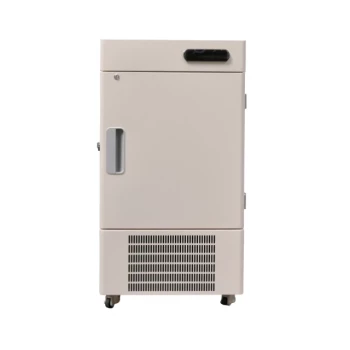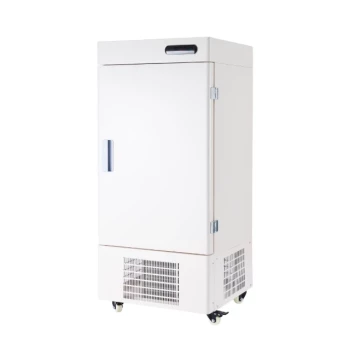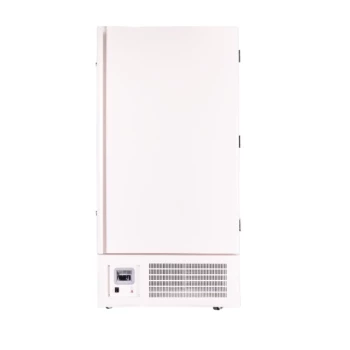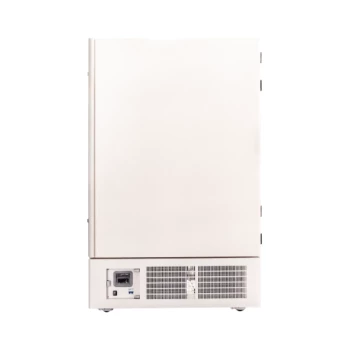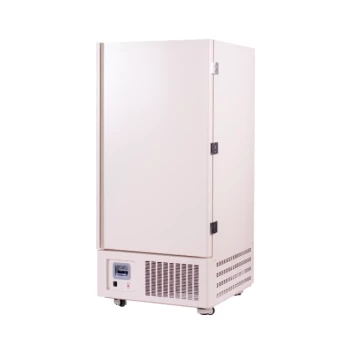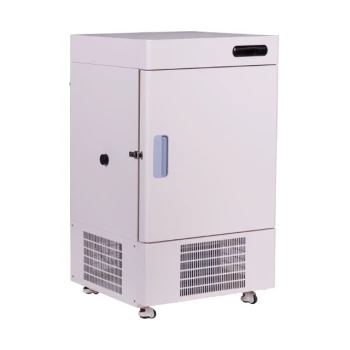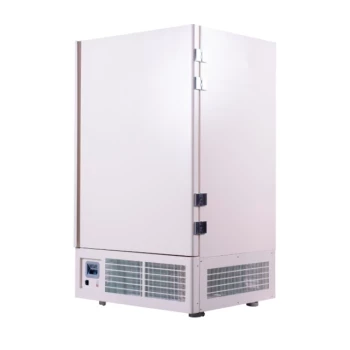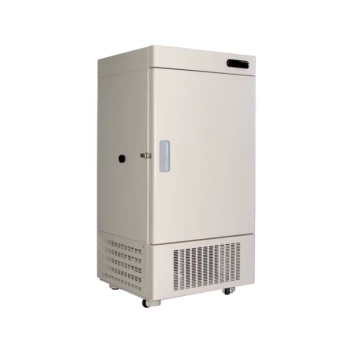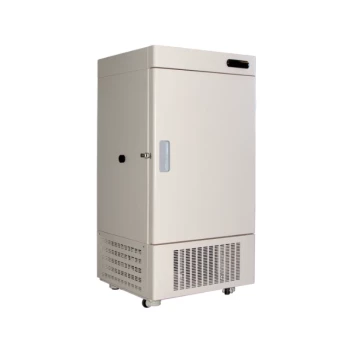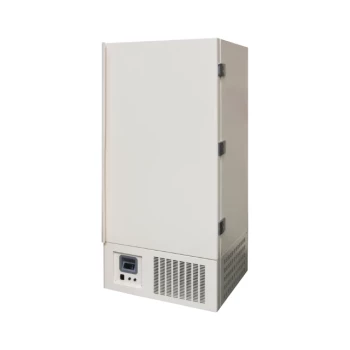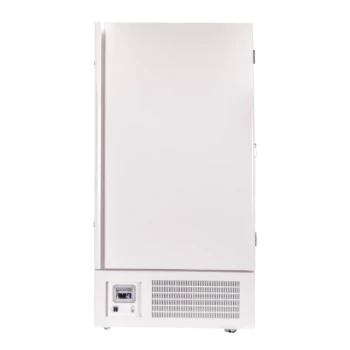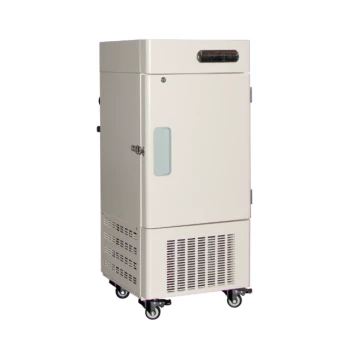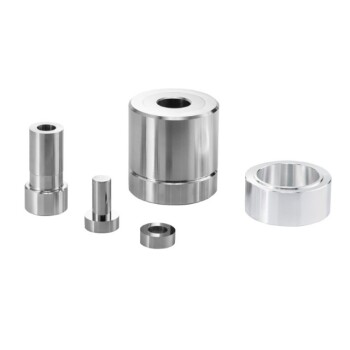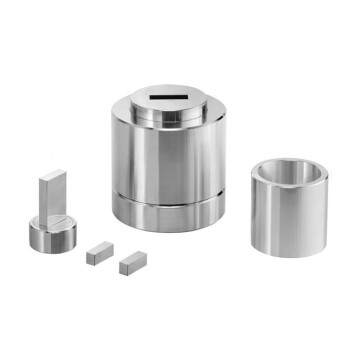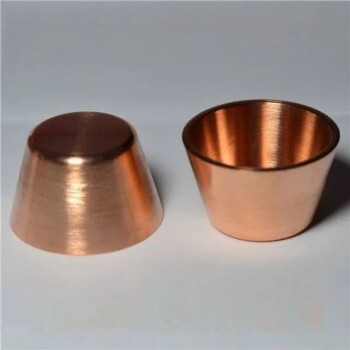At its core, an ultra-low temperature (ULT) freezer is a specialized refrigeration unit engineered to maintain temperatures between -40°C and -86°C. These extreme conditions are far colder than a standard household freezer's -18°C and are essential for preserving the integrity of sensitive biological materials. The primary function of a ULT freezer is to effectively halt biological activity, ensuring the long-term viability of invaluable samples.
The crucial insight is that ULT freezers are not simply colder refrigerators; they are precision instruments designed to stop time at a molecular level, safeguarding irreplaceable scientific and medical assets by preventing the chemical and enzymatic reactions that cause degradation.
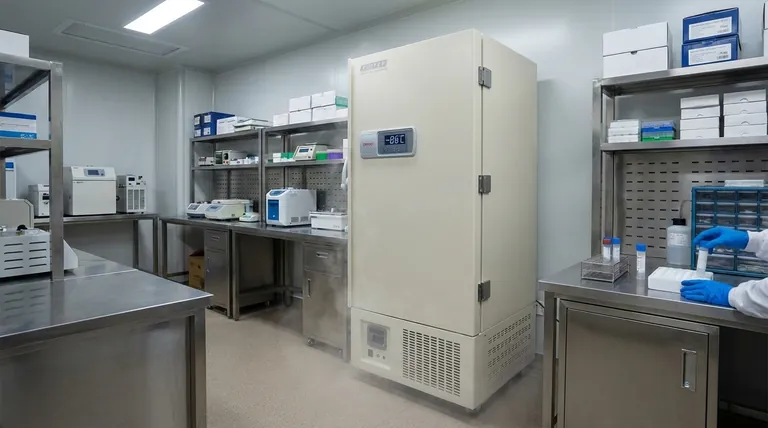
The Core Purpose: Why Such Extreme Cold?
Standard freezing is insufficient for the long-term preservation of many biological specimens. The extreme cold of a ULT freezer is necessary to completely arrest the molecular processes that would otherwise destroy a sample's viability and usefulness over time.
Halting Biological Activity
At temperatures approaching -80°C, most enzymatic and metabolic activities cease entirely. This prevents the natural degradation of complex molecules like proteins, DNA, and RNA, preserving them in a state of suspended animation.
Ensuring Long-Term Integrity
These freezers are critical for storing materials like cells, tissues, vaccines, and enzymes. By stopping all biological activity, researchers can ensure that a sample's characteristics remain unchanged between experiments, even if they are conducted years apart.
Preventing Sample Deterioration
The ultra-low temperature environment prevents the formation of large ice crystals that can damage cellular structures. It also stops chemical reactions that would otherwise denature proteins or break down other vital components.
How ULT Freezers Achieve and Maintain Low Temperatures
Reaching and holding a stable -86°C requires more than just a powerful compressor. These units are complex systems with multiple features working in concert to protect their contents.
The Cascade Refrigeration System
Most ULT freezers use a cascade refrigeration system. This involves two separate refrigeration circuits, with the first circuit cooling the second, allowing the system to achieve much lower temperatures than a single circuit ever could.
Advanced Temperature Control
Precise temperature is maintained through a combination of sensors, feedback loops, and control algorithms. These systems constantly monitor the internal climate and make micro-adjustments to the refrigeration cycle to ensure temperature uniformity throughout the cabinet.
Critical Design Features
To maintain stability, ULT freezers incorporate features like audible and visual alarms for temperature deviations, heated pressure release valves to prevent vacuum seals after door openings, and multiple internal doors for each shelf to minimize cold air loss when accessing samples.
Understanding the Trade-offs: Upright vs. Chest Freezers
The physical design of a ULT freezer has a significant impact on its use case and efficiency. The two primary formats, upright and chest, serve different laboratory needs.
The Upright Freezer: Prioritizing Access
Upright freezers are the most common choice in active research labs. Their shelved design makes it easy to organize and retrieve frequently used samples, and they have a smaller footprint, saving valuable floor space.
The Chest Freezer: Prioritizing Stability
Chest freezers are ideal for long-term archival storage. Because cold air is denser than warm air, it doesn't "fall out" when the lid is opened, leading to greater temperature stability and lower energy consumption.
The Constant Battle Against Frost
A major operational challenge is frost formation, which can impede door seals and reduce efficiency. Features like heated gaskets and ergonomic handles designed for easy opening and tight closing are critical for mitigating this issue.
Making the Right Choice for Your Laboratory
Selecting the appropriate ULT freezer depends entirely on your workflow and the nature of the samples being stored.
- If your primary focus is frequent sample access and organization: An upright ULT freezer with internal shelving and doors is the superior choice for day-to-day laboratory workflows.
- If your primary focus is long-term, undisturbed archival storage: A chest ULT freezer offers greater temperature stability and energy efficiency, minimizing risk to invaluable samples.
Ultimately, choosing the right freezer is a critical step in guaranteeing the long-term integrity of your work.
Summary Table:
| Key Feature | Typical Range / Type | Primary Benefit |
|---|---|---|
| Operating Temperature | -40°C to -86°C | Halts biological activity for long-term preservation |
| Common Types | Upright & Chest | Upright for easy access; Chest for stable archival storage |
| Core Technology | Cascade Refrigeration System | Enables reliable achievement of ultra-low temperatures |
Ensure the Integrity of Your Critical Samples
Choosing the right ultra-low temperature freezer is essential for protecting your valuable biological materials, from cells and tissues to vaccines and enzymes. KINTEK specializes in providing reliable lab equipment, including ULT freezers, to meet the precise demands of your laboratory.
We can help you:
- Select the ideal upright or chest model for your workflow and space.
- Ensure consistent, stable temperatures for your most sensitive samples.
- Optimize your lab's efficiency and sample security.
Protect your research investments. Contact KINTEK today for expert guidance on selecting the perfect ULT freezer for your needs!
Visual Guide
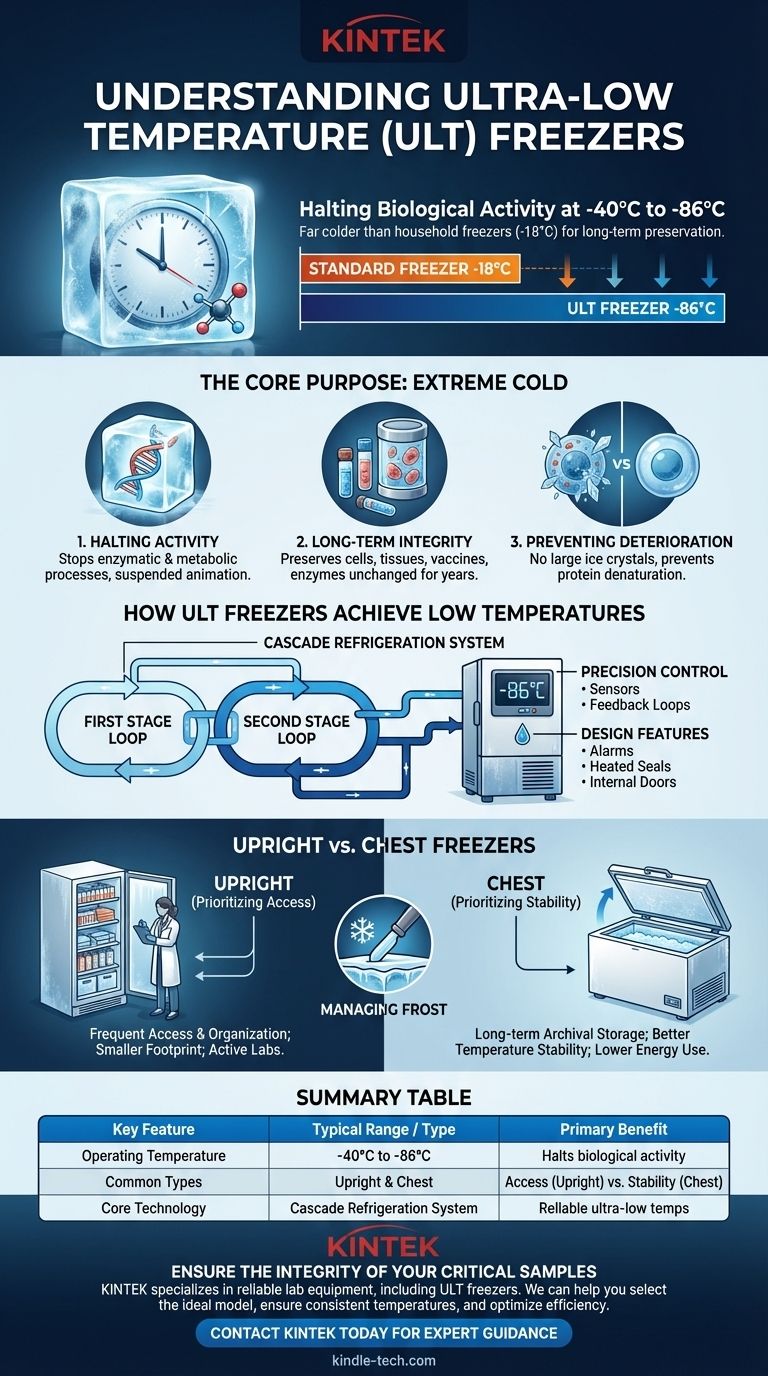
Related Products
- 58L Precision Laboratory Ultra Low Temperature Upright Freezer for Critical Sample Storage
- 158L Precision Vertical Ultra Low Freezer for Laboratory Applications
- 508L Advanced Vertical Ultra Low Temperature Freezer for Critical Laboratory Storage
- 938L Vertical Ultra Low Temperature Freezer for Advanced Laboratory Storage
- 408L Advanced Vertical Laboratory Ultra Low Temperature Freezer for Critical Research Material Preservation
People Also Ask
- What role does freeze-drying play in biotechnology? Preserving Biological Integrity for Long-Term Stability
- How does freeze drying compare to conventional freezing for biological material preservation? Achieve Long-Term, Shelf-Stable Preservation
- Why is a freeze dryer preferred for drying nickel nanoparticle precursors? Prevent Hard Agglomeration Now
- What are the characteristics of crystalline materials in lyophilization? Master Crystal Size & Eutectic Temperature
- How does freeze drying preserve the nutritional value of food? A Low-Temperature Solution for Maximum Nutrient Retention
- What is the primary function of industrial freeze-drying in 3D graphene aerogel electrodes? Preserve Structural Integrity
- What is the primary purpose of freeze drying technology in laboratories? Preserve Sample Integrity for Reliable Research
- What are the different types of ultra-low temperature freezers available? Choose the Right ULT Freezer for Your Lab
